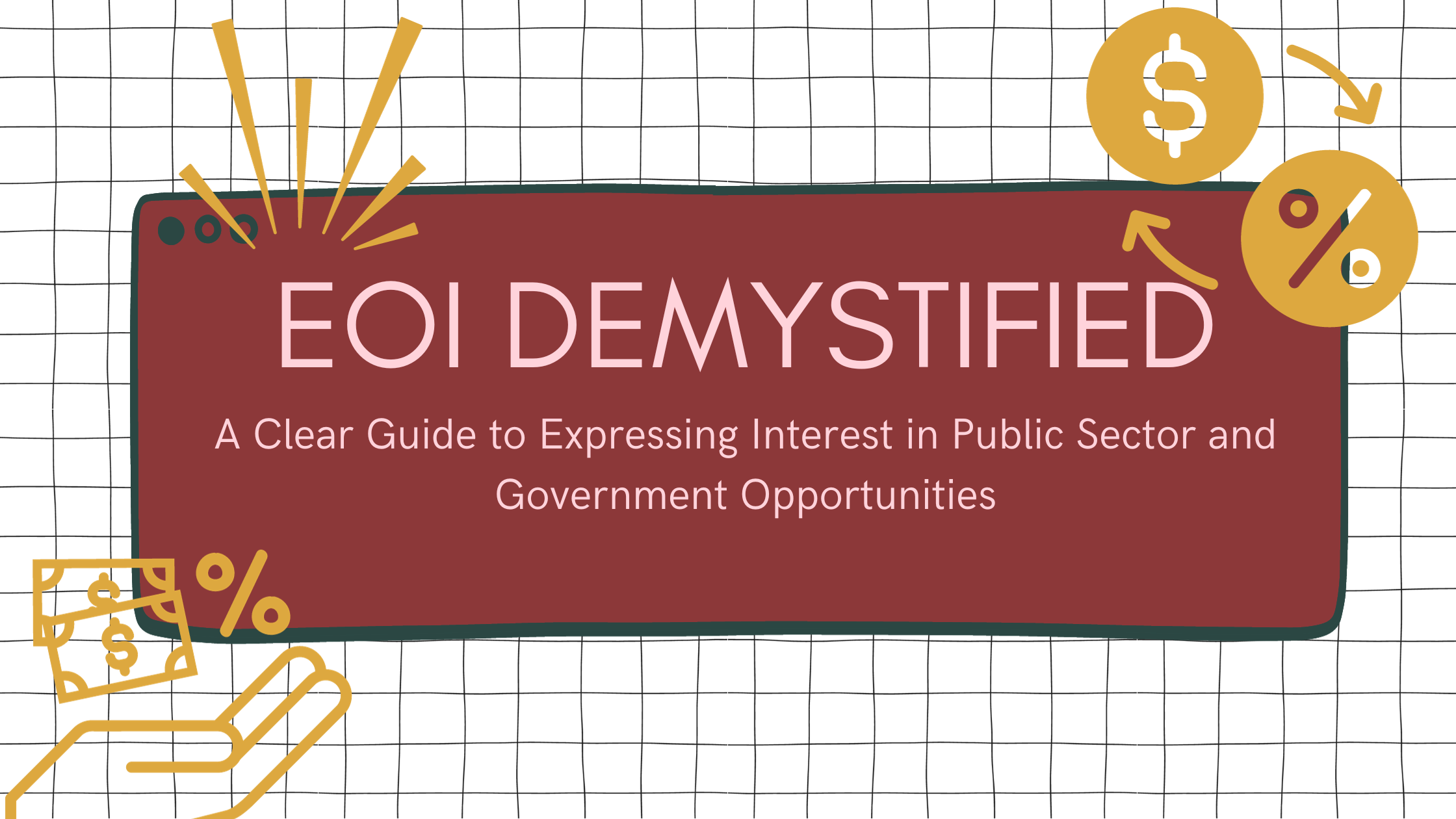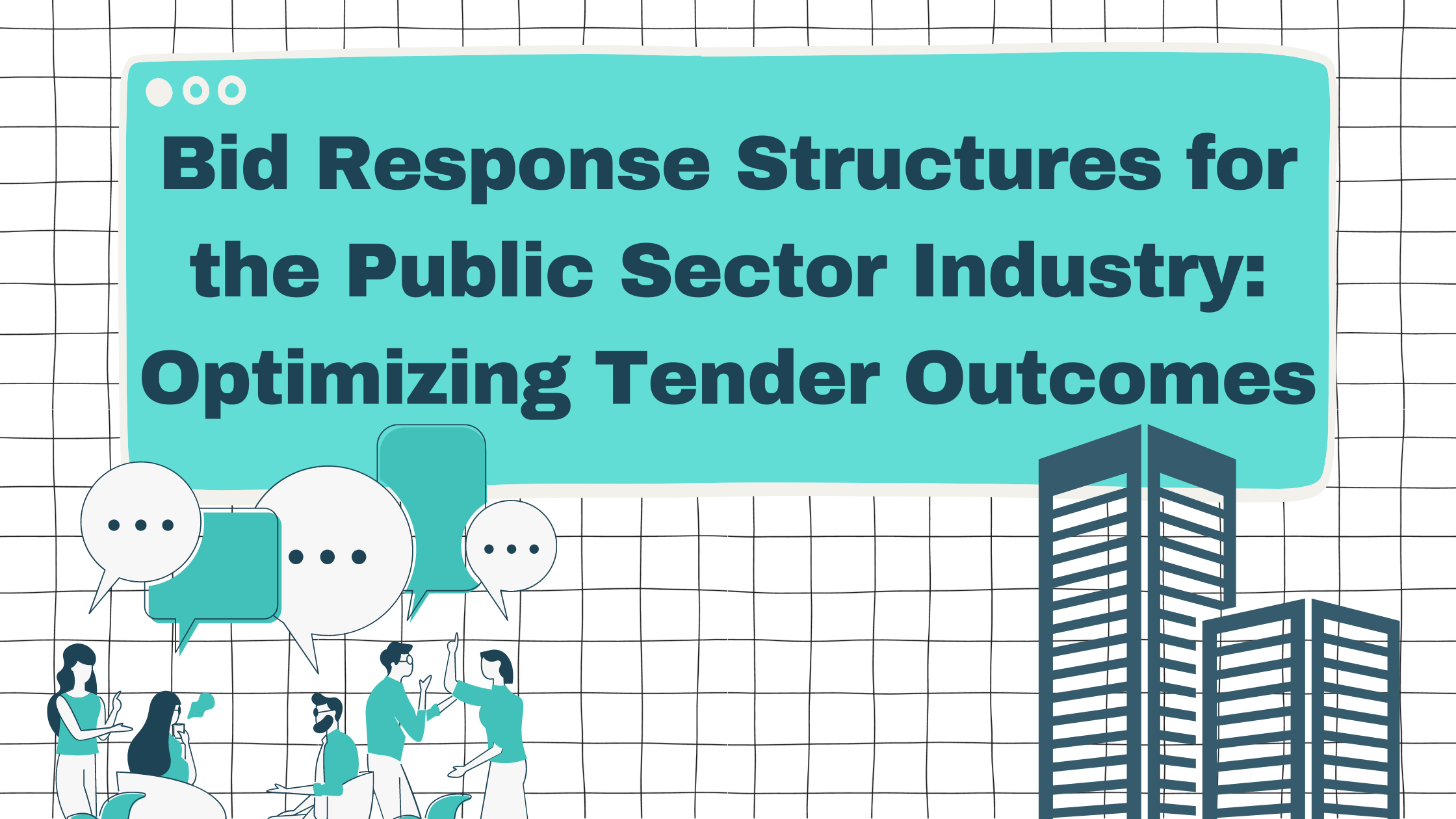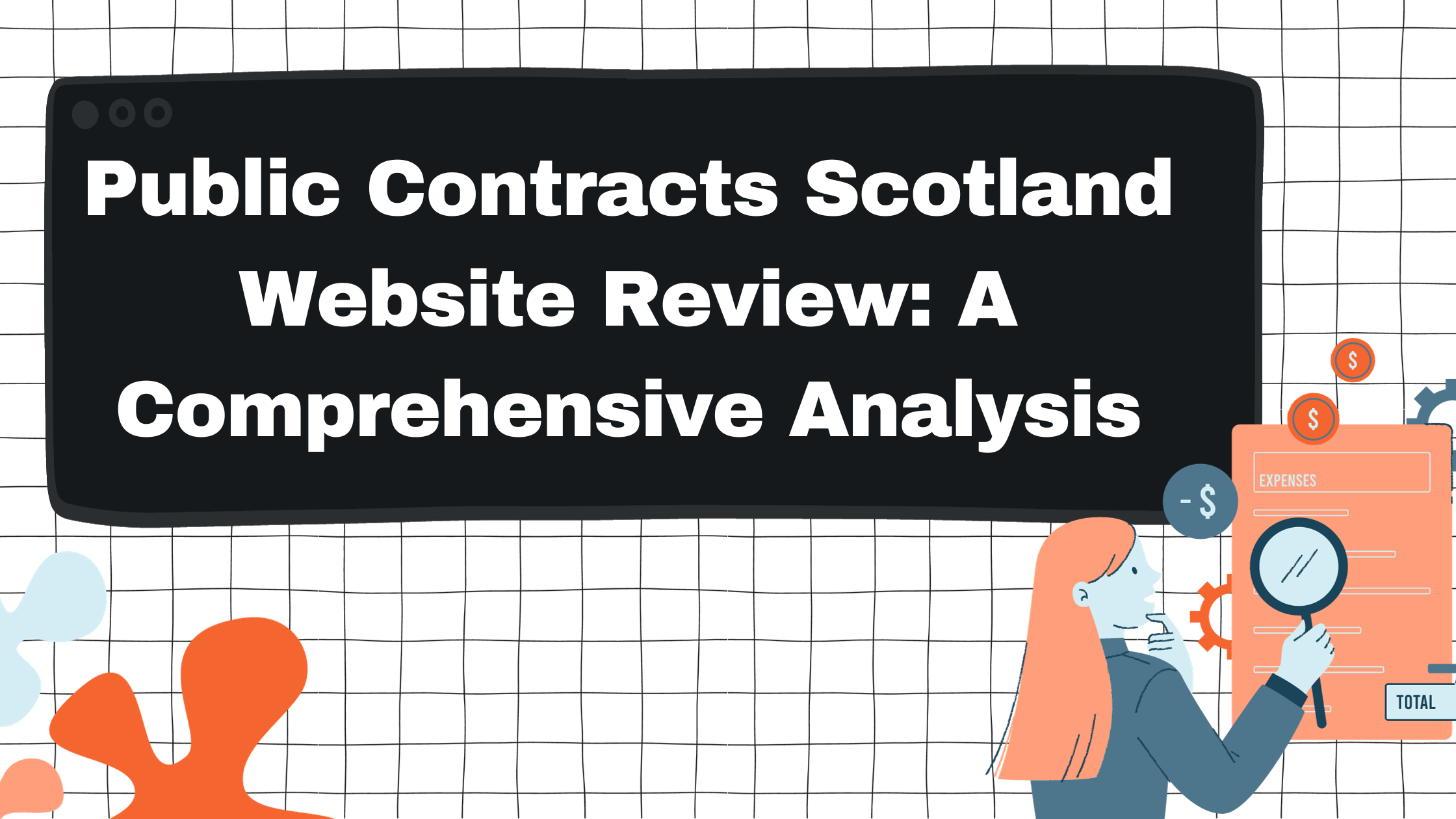Proposal and RFP Writing Services: Enhancing Your Skills in Crafting Winning Bids and Responses

Need Help with Your Bid?
Get in touch by filling out the form and one of our advisors will be in contact.
Contact UsBid Training: Courses and Workshops for Enhancing Expertise in Bidding Processes
Navigating the competitive world of bidding and proposals demands a specialized skill set, one that can be honed through targeted bid writing courses and workshops. These educational offerings are designed to equip bidding professionals with practical techniques to create compelling bids, improve win rates, and foster a deeper understanding of the bid process. From online modules that offer flexibility to intensive masterclasses led by industry experts, a variety of training options are available to meet diverse needs and schedules.

I've found that bid training doesn't just focus on writing; it's an immersive exploration of the entire bidding cycle. A strong bid team is backed by knowledge of how to identify bid opportunities, understand tender documents, and execute a well-crafted response that addresses all client requirements. Strategic approaches are crucial knowing how to differentiate your proposal can be the difference between winning and just participating. Continuous evaluation and enhancement of bid performance are also integral, ensuring that every submission is better than the last.
Key Takeaways
- Bid training courses enhance professionals' abilities to create and submit winning proposals.
- Strategic knowledge and team coordination are central to the bidding process.
- Continuous learning and improvement are essential for long-term success in bid management.
Understanding the Bid Process
When I approach the bid process, it's crucial to comprehend its intricate lifecycle, which can vary slightly between the public and private sectors. The bid lifecycle involves several stages that take place once a tender has been announced. In the public sector tendering, this process is highly regulated to ensure fairness and transparency. On the contrary, private sector tendering is more flexible, but it still requires a solid understanding of the bid fundamentals.
The process typically initiates with the Preparation phase, where I gather all necessary information about the tender and align it with my capabilities. This is followed by the Expression of Interest (EOI) or pre-qualification stage, where potential buyers demonstrate their interest and qualifications for the project.
Next, the Invitation to Tender (ITT) phase involves receiving the detailed tender documents and preparing a response that aligns with the buyer's criteria.
Bid Process StageDescriptionPreparationGathering initial info and resources.Expression of InterestSubmitting qualifications for the project.Invitation to TenderReceiving tender documents for response.
As I draft the response, I concentrate on crafting high-scoring answers by understanding compliance requirements and adding value through my proposals. Time management here is essential to ensure all parts of the tender are covered comprehensively within the submission deadlines.
Finally, the Evaluation phase is where the tendering authority assesses all bids before moving to the Awarding of the contract. In my experience, it is imperative to debrief and glean lessons for future tenders, regardless of the outcome. This continuous improvement is what sustains long-term success in bidding.
Essentials of Bid Writing
In the world of competitive bidding, it's essential to articulate your value proposition sharply and persuasively. Mastery in bid writing not only increases your win rate but also reflects your capability to deliver solutions.
Developing Win Themes
To ensure my bids stand out, I focus on developing win themes that are compelling and resonate with the prospective client's needs. This involves a strategic analysis of both the client's requirements and my organization's unique strengths to formulate a tailored value proposition. Such themes should be woven consistently throughout the bid to reinforce why my offering is the best choice.
Enhancing Writing Skills
A high-quality bid hinges on my writing skills. Clarity, brevity, and influence are my goals, steering clear of jargon to make the bid accessible. Being succinct and focused on client benefits rather than features is crucial. Writing persuasively involves a deep understanding of both the subject matter and the prospective client's priorities.
Effective Storyboarding
When structuring a bid, I rely on storyboarding as an effective planning tool. Constructing a storyboard allows me to map out each section of the bid, ensuring all elements link together cohesively and support the win themes. This visual method aids in aligning my team on the bid鈥檚 direction and ensures that the final presentation of the solution is logical and persuasive.
Building a Strong Bid Team
In my experience, constructing a robust bid team is pivotal for the success of any proposal. Below, I breakdown the essentials of assembling an effective team, outlining clear responsibilities, incorporating expertise, and managing team dynamics to consistently deliver outstanding bids.
Defining Team Responsibilities
The foundation of a strong bid team starts with clearly defined roles. I ensure that each member of my team understands their specific responsibilities. This includes the bid manager, who oversees the bid process and ensures compliance with the requirements, and the bid writers, whom I rely on to articulate our proposition persuasively. Responsibilities are not just about tasks; they include accountability for timelines and quality of work.
- Bid Manager: Oversees process, ensures timelines and compliance
- Bid Writers: Develop and write the bid content
- Reviewers: Assess bid quality and adherence to requirements
Incorporating Subject Matter Experts
Incorporating subject matter experts (SMEs) is crucial for adding depth and accuracy to our bids. I involve them early in the process to align their expert insights with our strategy. They provide technical and specialist knowledge that enriches our responses, and often, their input is the differentiator in a competitive bid.
- Technical Experts: Provide detailed product or service knowledge
- Industry Consultants: Offer insights on industry trends and benchmarks
Bid Team Management
Effective bid team management requires a balance between leadership, coordination, and coaching. I foster an environment where open communication and collaboration are the norms. I set clear expectations and timelines, and facilitate regular check-ins to monitor progress. It is essential to provide ongoing support and resources the bid team needs to thrive.
- Communication: Encourage regular meetings and updates
- Support: Provide necessary tools and continued learning opportunities
By meticulously organizing the team, centering on their strengths, and streamlining our processes, we can construct a formidable bid team that is adept at securing wins for the business.
Strategic Approaches to Winning Bids
To secure a win in the competitive field of bidding, it's crucial to employ a well-crafted win strategy, leverage innovative techniques, and conduct a thorough bid decision analysis. These core elements form the backbone of successful bid submissions.
Crafting a Win Strategy
My win strategy hinges on understanding the client's needs intimately, which enables me to tailor my solutions effectively. I use a structured approach to identify unique selling propositions that align with the bid requirements. This involves:
- Market Research: Knowing the client's industry inside out.
- Competitor Analysis: Differentiating my bid from competitors.
- Value Proposition: Articulating the benefits clearly and concisely.
Innovative Techniques for Winning
Innovation is at the heart of winning bids. I integrate the latest tools and methodologies to stay ahead of the curve. This encompasses:
- Creative Problem Solving: Thinking outside the box for solutions.
- Technological Edge: Utilizing cutting-edge software for bid management and presentation.
Embracing these techniques ensures that my pitch stands out and resonates with evaluators who are looking for forward-thinking partners.
Bid Decision Analysis
Making informed bid decisions involves a critical evaluation of many factors:
- Risks and Rewards: Weighing the potential benefits against the possible pitfalls.
- Alignment with Goals: Ensuring the bid aligns with my strategic business objectives.
This analytical approach guides me in deciding which opportunities to pursue and how to allocate resources efficiently, thereby increasing the chances of a win.
By focusing on these strategic approaches, I am equipped to craft winning bids that resonate with potential clients and effectively showcase my capabilities and innovations.
Evaluating and Improving Bid Performance
In my experience as a bidding professional, continuous evaluation and strategic improvement are critical for enhancing bid performance. To ensure that every bid is a step towards success, I focus on meticulous bid reviews, assimilating lessons learned, and employing effective strategies to increase bid win rates.
Conducting Bid Reviews and Feedback
After submission, I organize a debrief session to evaluate the bid. This involves a thorough review of every section, identifying strengths and weaknesses. I place significant emphasis on collecting feedback from all stakeholders involved鈥攖heir insights are invaluable in understanding our bid's reception. Additionally, I scrutinize scores and comments from evaluators if available, and create a table of the bid elements alongside feedback to visualize areas for improvement.
- Documentation Reviewed: Proposals, Presentations, Supporting Documents
- Feedback Sources: Team Members, Clients, Subject Matter Experts
Learning from Lessons Learned
Reflecting on past bids, I catalog all outcomes鈥攂oth successes and failures鈥攊nto case studies. My approach includes examining aspects such as compliance with requirements, innovation, and the quality of the deliverables. By analyzing these case studies, I cultivate a repository of lessons learned that become a guide for future bids. I ensure these lessons are always accessible for review and serve as a continuous learning tool for my team and me.
- Aspects Analyzed: Compliance, Value Propositions, Pricing Strategies
Increasing Bid Win Rate
To enhance my bid win rate, I implement data-driven strategies tailored to each proposal's context. The insights gained from bid reviews and case studies shape my approach towards crafting more competitive bids. I concentrate on creating compelling narratives supported by robust data, aligning with client priorities, and demonstrating clear value. Regular training, both internally and through external experts such as the British BIDs Academy and Bid Perfect Online Bid Training, keeps my skills sharp and up-to-date with industry best practices.
- Strategies Implemented: Narrative Development, Data Analysis, Alignment with Client Objectives
Bid Training Program Development
When developing a bid training program, my first step is to assess the learning objectives that align with the demands of bidding professionals. My approach includes a blend of training courses and workshops designed to enhance the tangible skills required for successful bid submissions.
The bid training curriculum typically begins with foundational courses. I offer an in-house training module that is tailored to the specific needs of the organization. These sessions focus on the nuances of bid strategy and the art of persuasive writing. It's essential to me to create an interactive environment where participants can engage in practical exercises that hone their skills in real-time.
The core of my training includes bid writing courses that are not only informative but also CPD accredited, ensuring that participants gain recognized qualifications to help progress their careers. This accreditation is a testament to the rigorous standards upheld in the program.
Each workshop I conduct dives deep into the mechanics of bid writing, from understanding the buyer's perspective to effectively conveying value propositions. The course materials I've developed for these workshops are comprehensive and serve a dual purpose鈥攅ducation and practical application.
For a more customized learning experience, I offer bespoke courses. These sessions are personalized for a team's specific challenges and objectives, leveraging unique industry insights to give a competitive edge.
- Course Offerings:
- Foundation of Bidding Principles
- Advanced Bid Writing Techniques
- Masterclass in Bid Management
By taking part in my bid training program, professionals can expect a robust educational journey that equips them with the insights and tools necessary for mastering the bids and proposals landscape.
Frequently Asked Questions

In my experience, professionals seeking to expand their skills in bid writing often have key questions about the training required. I'll address some common inquiries regarding the essential components of bid writing courses, skills, and opportunities for development.
What are the essential components of an effective bid writing course?
An effective bid writing course should comprehensively cover the bid lifecycle, including phases like research, strategy development, and review. Knowledge of core training aspects is vital, ensuring participants can craft winning bids through practical and theoretical understanding.
Which skills are prioritized in construction bid writing workshops?
Construction bid writing workshops typically prioritize skills such as understanding technical requirements, cost estimation, and compliance with regulations. Emphasis is also placed on the ability to articulate a compelling narrative that aligns with the client's objectives.
How does bid management training differ from bid writing?
While bid writing focuses on articulating value propositions and persuasive narratives, bid management training encompasses a broader skill set including project management, team coordination, and strategy implementation, essential for overseeing the entire bid process.
What opportunities are available for gaining real-world bid writing experience?
Real-world bid writing experience can be gained through internships, mentoring programs, and on-the-job training. Participating in actual bid writing projects, such as those offered by training providers like Bid Coach, can significantly enhance practical expertise.
In what ways can non-profit organizations benefit from specialized bid writing training?
Non-profit organizations can benefit from specialized bid writing training by learning how to effectively communicate their unique value and social impact, which is essential for securing funding and support in a competitive landscape.
What is the job outlook for professional bid writers in the current market?
The job outlook for professional bid writers is positive due to the ongoing need for skilled individuals who can secure new contracts and funding opportunities across various industries, thus driving organizational growth.
Ready to start your search?
Get in touch by filling out the form to the right and one of our advisors will curate a personalised selection for you.
Get in touchBlogs. Guides. Helpful advice.

Mastering Proposal and RFP Writing for Government and Public Sector Opportunities

Proposal and RFP Writing Services: Enhancing Public Sector Tender Outcomes

.svg)